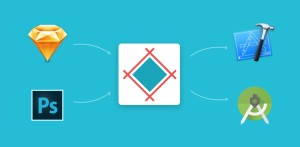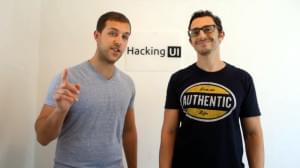Personal branding is one the most (in)famous trends of the last decade.
In this article, I’ll talk about what a personal brand is and how building one can help boost your career. I’ll show you how to stake your claim in the online space as well as three paths you can follow to level up your brand. That’s plenty to talk about, so let’s get this started.
The argument for a personal brand as a developer
Our first stop is Wikipedia, where we can find the following definition:
Personal branding is the practice of marketing people and their careers as brands. It is an ongoing process of developing and maintaining a reputation and impression of an individual, group, or organization.
That’s the part most of people have in mind when they think about personal branding. They think about the current diva of the day. About famous media celebrities. About publicity stunts that are meant to push you into the limelight. About presenting a fake facade in order to obtain undeserved rewards. And many other less-than-pleasant examples.
However, there’s another aspect to personal branding — the other side of the coin, so to speak. Right after the definition above, the Wikipedia article has the following phrase:
In Be Your Own Brand, first published in 1999, marketers David McNally and Karl Speak wrote: “Your brand is a perception or emotion, maintained by somebody other than you, that describes the total experience of having a relationship with you.”
In other words, your personal brand includes what other people say about you when you’re not there. It includes your reputation, your body of work, the testimonials other people give about you. Nowadays it includes your tweets and your posts on Facebook. To many people, your pictures on Instagram matter just as much (if not more) as your contributions to open-source software. Want to travel in the USA? Be prepared to let them know all your social media accounts for the last five years. (Sources: Sophos and BBC). And the examples can continue.
Everything you say and do affects your public image and your reputation. And that can have devastating impact on your career. Remember the Aria Richards case back in 2013? She was a developer taking part in a conference where she published a tweet about some male developers making sexual jokes behind her, including their picture. In the fallout, one of the guys was fired, but Aria lost her job as well, because her action was deemed to be damaging to the reputation of the company employing her. (Sources: ArsTechnica and CBSNews).
Fortunately, it’s not just about mitigating possible damage. A great personal brand can increase your leverage at a level you wouldn’t dream about. It can demonstrate your problem-solving ability when you first make your career transition into development and don’t have a work history that can vouch for you. It can put you in a better light when applying to a new job, when demonstrating your skills in an interview, and you’ll have better negotiating power when discussing the salary and the perks of the position. If you have your own business, it can bring you more and better clients and projects. What’s not to like about it?
But there’s one caveat in all this: be authentic. Don’t do it to project something you aren’t, or as a money-grabbing move or, worse, to cover negative aspects. That’s the main reason people react badly when hearing about personal branding.
This subject alone (the pros and cons of personal branding) can fill a whole book and goes beyond the scope of this article. So, stop letting others write your story and take control of your narrative. All this being said, let’s push forward.
Stake your claim and establish your presence
The first phase in building your personal brand is staking your claim in the online space and laying down the foundations for further expansion. It is, in my opinion, the most important part of the process. If you do nothing else from the other things we’ll talk about later, but you work on this part, I’m confident you’ll get a lot further than many other people.
We’re currently living in the age of social media, so you might be surprised to hear that this foundation is actually your own website. Yes, a website. The old-fashioned kind, where you buy a domain name, arrange hosting and upload the files on the server for everyone else on the Internet to find.
“That’s the dumbest idea I’ve heard,” you might say. “I don’t need a website. I have my CV on LinkedIn, my pictures on Facebook and Instagram, my articles on Medium, my code on GitHub and I keep in touch with everyone on Twitter. Why would I waste time and effort with a website that I have to promote as well?”
From a certain point of view, all that sounds quite reasonable. But all those options have one thing in common: they’re all third-party platforms, and you’re actually renting the right to use them. You might not pay with money, but they are gathering data about you and your habits that’s either used to target ads your way or it’s passed to third parties for the same reasons. Remember, if you’re not paying for something, then you are the product being sold.
It all comes down to a simple truth: you can’t build your home on rented land. You can lose access to social media at any moment. All these platforms have somewhere in their terms and conditions a clause that allows them to terminate their service to you at any time without having to provide an explanation. Or your account could get hacked or deleted. Your tens or hundreds of thousands of followers? All gone in a blink of an eye if you lose access to the platform.
That’s why you need something you own completely — a place to present yourself without being beholden to a platform that only cares about their own interests. You need a way to gather contacts, followers, connections and clients and be able to keep them. Yes, websites and servers do get hacked. But in that case, all you need to do is install the latest backup and you’re up and running again.
Let’s get down to the trinity of items needed to establish your online presence:
- A domain name
You need your own custom domain name for multiple reasons. It gives you more legitimacy and it opens the gates for further options down the road. www.johnnydev.com is a lot better than johnnydev2335.github.io, don’t you think? We can have a very long discussion over whether it’s better to choose a “brand name” or your own given name for the domain. However, that’s a conversation for another time and place.
- Hosting
There are plenty options of free hosting for developers: GitHub Pages, Netlify and many more. In many cases, that’s all you need to have a website up and running. For some of the more advanced options, though, it’s better to get some classic dedicated hosting.
- Custom email address
This is the same story as with the domain name above. I think we can agree that johnny@johnnydev.com is more professional than johnnydev2335@gmail.com or some other email address you created when you were 16 years old.
Now all you have to do is upload your site and let everyone know about it. You can go from something as simple as a single static page to something complex like a WordPress blog or a static site generator like Gatsby or Hugo. Don’t despair if design isn’t your strong point. There are plenty of free themes and templates available.
Remember, you don’t have to code the website yourself. You get extra brownie points and bragging rights for writing as much code as possible yourself, but that’s not a requirement. If time’s at a premium for you, just grab a free template or theme and get started. Be sure to check the code for any hidden, unpleasant surprises, though, or use trusted sources, like curated collections and communities. All major players, like WordPress, Gatsby or Hugo, come with curated themes that you can choose from.
Once you have a website
Congratulations! You just became the proud owner of your own piece of online real estate. You how have a place where you can link all your social media profiles, upload your CV, write some blog posts or even articles. If you want to take it even further and remove further your dependency on other platforms, you can start your own email list. But that’s a topic for another time. For now, we’ll focus on three paths you can take to further increase your influence, your reputation and, ultimately, your personal brand. These are paths that other developers have taken before, and they got a lot of benefits out of that choice. They’re also not mutually exclusive. You can mix and match until you get the combination that works best for you.
First path: become an authority
The first option is to become the champion of a cause. Pick up that flag, raise it high and make it the centerpiece of your career. Research it, write articles, tweet and speak about it. Become the person everyone associates with that cause, technology or area of interest.
One such example is Rachel Andrew. Her career so far has a lot of accomplishments. She has written (or co-written) many books, she has her own business, but what she’s most well known for is her work with CSS Grid. All those things got her an invitation to the CSS Working Group, where she has direct input into how the new CSS specifications are created.
Jen Simmons has a similar story. She is Rachel’s colleague in the CSS Working Group and a fellow champion of CSS Grid and modern layout techniques. Jen is also Designer and Developer Advocate at Mozilla, where she advocates for web standards and researches the coming revolution in graphic design on the Web.
A different example is Harry Roberts. He started with a CSS focused blog and wrote some very well-appreciated articles. Some of those articles were even required reading material for one of the University courses he thought of attending. Needless to say, he gave up on going to college and continued pursuing his career.
Over time, though, he realized that CSS alone is not what he wants to do. So he pivoted into the related field of front-end performance and he managed to become a recognized authority in this field as well. His greatest regret, though, is being stuck with a domain name he coined when he was 17 years old.
There’s a high chance that you could think of someone like these people yourself, which is more proof that this approach is a valid one. So maybe you can find something to become an expert in? You’ll never know unless you try.
Second path: the power of content creation
The second approach to a better personal brand is to bring value by creating content. There are plenty of ways to do it. You can make videos on YouTube, stream your coding on Twitch, or record yourself teaching a course. Too shy to appear on camera? Use audio instead. Podcasts are amazingly popular with developers because they can be listened to while doing something else. Like while you drive your car. Or while being on the train or the bus. Or during your jogging session. Or you can share your knowledge and experience in writing — blog articles, tweets and even books are great ways to help other people and raise your profile at the same time.
This first example I’m presenting is, again, Harry Roberts of csswizardry.com. He owes most of his notoriety to his blog, which he started way back in December 2009. As I mentioned above, his articles became so popular that they ended up on the required reading list to one of the universities he thought about applying to. More than 10 years later, the blog is still going strong, and Harry continues to publish useful and insightful articles.
Another prolific creator that started with a focus on CSS is Chris Coyier of CSS-Tricks.com. This website also helped countless developers to discover the power, elegance and beauty of CSS. Over time it evolved into a fully fledged portal with an almanac, guest writers, a job board and a lot of other features.
But Chris does more than write. He’s also a very prolific podcaster, co-hosting the ShopTalk Show, where he talks about building websites, and he also co-hosts the CodePen Radio podcast, where he talks about various aspects of building and running a business in the web development industry.
Wes Bos is another name in the industry that shouldn’t need any introduction. He writes about everything front end, especially JavaScript. And, if you want that knowledge distilled and packaged neatly, he makes courses. Lots of courses. Some are free, some are not. Don’t worry if you’re from a less developed country, though. Wes gives up large discounts for developers just like you. And there are plenty useful tutorials on his silver-plated YouTube Channel, for free.
Ah, yes, YouTube. On first glance, this platform is not a favorite for developers, because video requires a lot more time and effort invested in production than any of the other content creation options I’ve mentioned. I’ve talked about Wes Bos. Jen Simmons runs Layout Land. Chris Coyier runs the CSS-Tricks channel. But for such people, their channels are of secondary importance, because creating videos not only takes a lot more time, but requires a totally different set of skills.
As such, it’s more common for the big channels in the industry to belong to communities rather than individuals. And if they don’t, they’re also usually branded as entities. Some major channels in this category are freeCodeCamp, Design Course or CS Dojo.
As you can see, there are plenty of options when it comes to content creation. Once again, the subject is way too broad to be covered completely in this article. So let’s wrap up this part and move to the next one.
Third path: communities and events
The third path to a better personal path as a developer is to harness the power of communities — groups of like-minded people, sharing a common interest and interacting using a common platform or location. There are two types of such groups one can nurture — online and offline — and they’re each special in their own ways.
Online communities need a hub of content that attracts people and a platform where these people can interact both with the content creator itself and with each other. The hub can be a blog, a course platform or a collaboration portal. On the other hand, the interaction platform can be a classic one, like a bulletin board or a forum or something more modern, like Slack or Discord. Let’s have a look at some examples.
Our hosts at SitePoint offer content via the articles on the website and access to a Premium section containing both a very large library of books and a set of courses. The community aggregates on the online forums and on the official Discord server. We mentioned Wes Bos earlier and the amazing collection of courses he created. People taking those courses can hang together on Slack. Then we have communities like Dev.to where content and user interaction happens in the same place, as people engage in discussion using the comment system for each content piece.
There are multiple ways to take advantage of an online community. First, it allows the creator to interact directly with people consuming their content. You get the chance to show multiple aspects of your personality, enhancing your brand and influence. Networking is another huge benefit; interacting with your community can open unexpected opportunities.
This’s also a chance for community members to shine. These are people who make useful contributions, who provide answers, who guide the discussion and help keep the disturbances to a minimum. The creator and the other community members will take notice of these people, allowing them to build their own reputation and personal brand.
Let’s talk now a bit about offline communities. The most important benefit they bring is the direct contact with people. So far there’s no tool that can substitute face-to-face interaction with other people. That’s where local events and meetups come into play.
There’s a high chance you already have a meetup in your area that has the same focus as the one you’re interested in. Just go to Meetup.com or Eventbrite and see what’s available. These platforms also have tools to show what people in your area are interested in. If there’s no meetup already running, you could start one yourself.
Of course, running a meetup is no small feat. Do some research before you dive in, reach out to other people interested in the same topic and get help getting stings started. There are also “franchise” meetups you can make use of and that will give you the support you need. For example, you can start organizing a CodePen meetup and their team will help you with their experience, advice, promotion and many other things you didn’t know you needed.
Wrapping things up
Have I convinced you already that it’s worth investing in your personal brand? I hope so. At the very least, I urge you to establish your online presence and get your own website. Remember: “You can’t build your home on rented land”. You don’t need to get fancy, it doesn’t have to win awards. (It helps if it does, but that’s the cherry on top of the cake.)
Of course, building a personal brand isn’t a silver bullet solution to success. It’s not an instant power-up, and it won’t convince your boss to double your salary starting next month. But it will create consistency, and it will allow you to use tools, tactics and strategies you didn’t know you could use. People have been building product and company brands for decades. As a result, they’ve created a lot of tried-and-true approaches that you can appropriate and adapt for your own personal brand.
There are also many more ways to build your brand than the short list I mentioned here. There’s really no limit but your own imagination — and you can always adapt ideas from other people. Find out what works for you and make it yours. After that, it’s just a matter of walking that path.
Frequently Asked Questions about Building a Personal Brand as a Developer
How can I leverage social media to build my personal brand as a developer?
Social media platforms are powerful tools for personal branding. You can use them to showcase your skills, share your knowledge, and connect with other professionals in your field. Start by creating professional profiles on platforms like LinkedIn, Twitter, and GitHub. Share updates about your projects, contribute to discussions, and engage with your followers. Remember to maintain a consistent image and voice across all platforms to strengthen your brand identity.
What are some common mistakes to avoid when building a personal brand?
Some common mistakes include not having a clear focus, inconsistency in communication, not engaging with your audience, and not updating your brand as you evolve professionally. It’s important to have a clear vision of what you want your brand to represent, and ensure that all your actions align with this vision. Regularly interact with your audience and update your brand as your skills and experiences grow.
How can I use content creation to build my personal brand?
Content creation is a great way to establish yourself as an expert in your field. You can create blog posts, videos, podcasts, or social media posts about topics related to your field. This not only showcases your knowledge but also provides value to your audience. Make sure your content is high-quality, informative, and reflects your personal brand.
How can I measure the success of my personal brand?
You can measure the success of your personal brand through various metrics such as social media engagement, website traffic, and professional opportunities. If you’re getting positive feedback, increased followers, and opportunities like speaking engagements or job offers, it’s a good indication that your personal brand is successful.
How can I maintain my personal brand over time?
Maintaining your personal brand requires consistent effort. Regularly update your social media profiles, engage with your audience, and continue to produce high-quality content. Also, as you grow professionally, make sure to update your brand to reflect your current skills and experiences.
How can I differentiate my personal brand from others?
To differentiate your personal brand, focus on what makes you unique. This could be your unique skills, experiences, or perspective. Highlight these unique aspects in your communication and content.
How can I use networking to build my personal brand?
Networking is a powerful tool for personal branding. It allows you to connect with other professionals, learn from them, and gain visibility in your field. Attend industry events, join online communities, and reach out to professionals you admire.
How can I align my personal brand with my career goals?
Your personal brand should reflect your career goals. If you aspire to be a leader in your field, your brand should convey leadership qualities. If you want to be known for a specific skill, highlight this skill in your branding.
How can I avoid damaging my personal brand?
To avoid damaging your personal brand, be mindful of your online presence. Avoid sharing controversial or inappropriate content. Be respectful in your interactions and maintain a professional demeanor.
How can I use personal branding to attract job opportunities?
A strong personal brand can make you more attractive to potential employers. Showcase your skills, experiences, and professional achievements in your branding. Also, engage with companies you’re interested in and use your brand to convey how you can add value to them.
 Adrian Sandu
Adrian SanduAdrian is a UX Developer, creator, and speaker living in Iasi, Romania. He believes happiness is the true measure of success and he wants to help other developers achieve their dreams. In the off time, he loves playing video games and tinker with custom PC builds.







